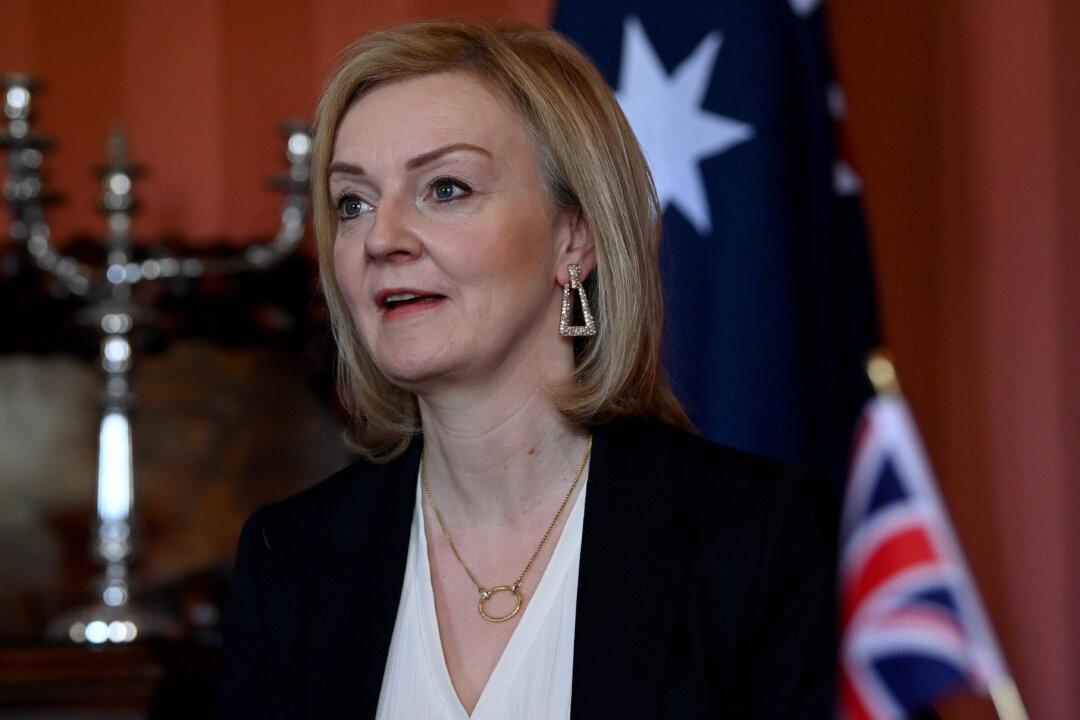The Chinese regime’s economic coercion of Australia has been a “wake-up call” to other countries, according to UK Foreign Secretary Liz Truss.
China had been Australia’s top trading partner. But after Australia called for an independent investigation into the origins of COVID-19 in April 2020, the communist regime retaliated by adopting a series of measures against Australian exporters, including arbitrary border testing and inspections, the imposition of tariffs, and unwarranted delays in listing export establishments and issuing import licenses.





